-
We were asked by Arts Award to submit inspiring, creative workshop proposals for the Digital Arts and Culture space at Mozfest 2016 We submitted two and to our delight both were excepted! You can read more about our other workshop here.
-
Robotticelli - Making Art with Robots
-
Part r&d sharing, part unplugged-creative-coding workshop, part hacking-and-making and part get-your-hands-dirty art session.
-
We began with Dave Darch describing his motivation for devising the session along with trusted collaborator Fran Gkotsi. Dave explained his long-standing fascination with a computer’s ability to take simple instructions and repeat while modifying over time; multiplying and morphing simple ideas in to something highly complex and engaging…he spoke about how as a music producer the ‘happy accidents’ that occur when a computer throws up something unexpected are often keys to unlocking doors unlikely to have been accessed deliberately.
-
To start, participants were encouraged to place themselves on a physical line across the room depending on how strongly the agreed or disagreed with “I am a coder” at one end and “I am an artist” at the other.
Participants were then encouraged to pair up with complementary skillsets, so that the “coders” teamed up with the”artists” to create algorithms, or rules, for the artist-human-bot to carry out. Rules such as “hold pen with your left hand, shut your eyes, draw five stars inside each other”. Or “hold two pens in one hand and tap a rhythm with your other hand while attempting to draw Big Ben” gave rise to fascinating images and much laughter.
Artists and coders then swapped roles and the process began again this time with the “artists” as the “programmer”.
-
Now we had physically embodied our digital counterparts it came time to employ the robots to do the dirty work for us. Participants took turns to drive a Raspberry Pi powered differential drive robot around our canvas while the group modified and added to the simple paintbrush holding structure. Others were encouraged to drip paint on to the wheels and provide the robot with the raw material for its emerging masterpiece.
Another robot was brought in to the creation process. This time a Lego EV3 robot running on the open source Open Roberta platform (similar in many ways to the Scratch visual programming language) was employed. Rather than being controlled in real time this robot was programmed with algorithms which were uploaded to it via a USB cable.
-
Participants gave some great feedback including, surprisingly, how attached they became to the robot! One participant commented that she
“felt sad when it came time to power it down and pack it away”. Others commented how they “enjoyed being so hands on with the robots”. Others that the whole session was “really clear and fun”
-
If you have any questions about using or teaching robotics in your school or youth setting please do not hesitate to get in touch. We are offering various workshops in creative coding, robotics and making. Why not connect with us on Twitter and see what we’re up to now? @ALL_educators @davedarch
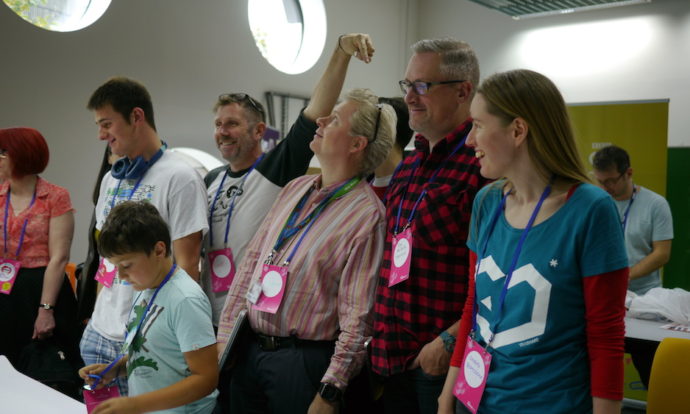


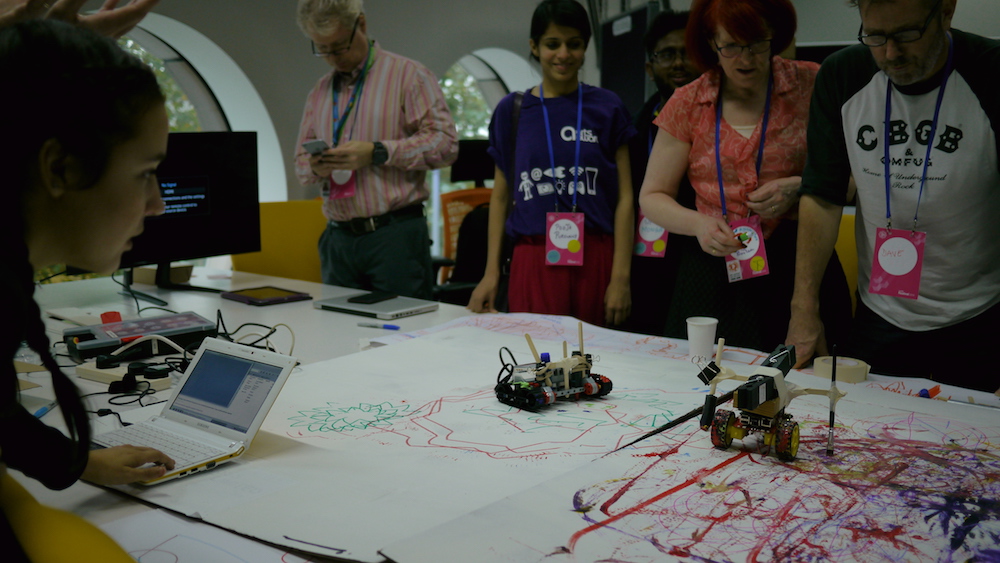
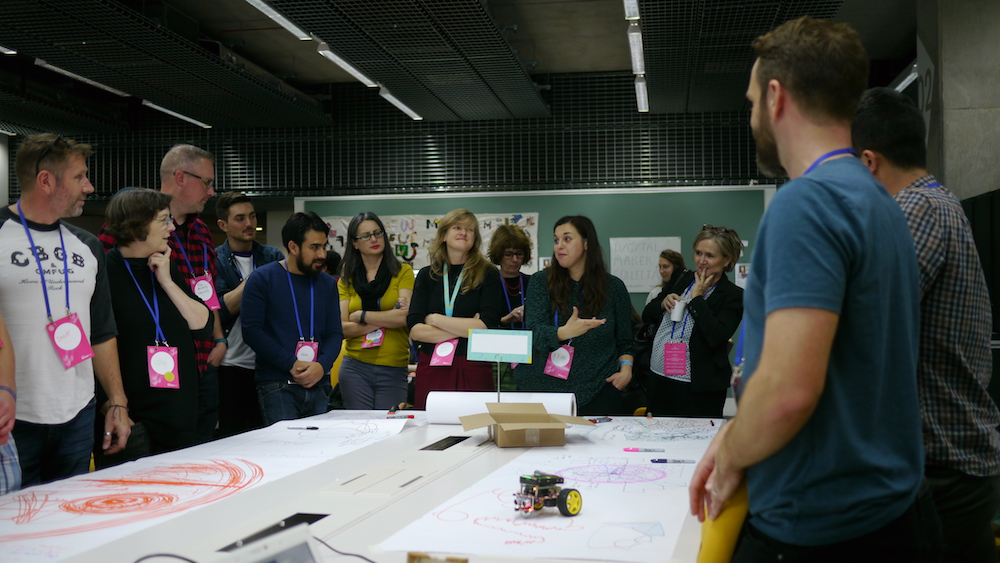
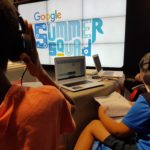
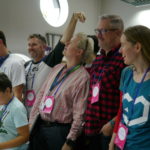


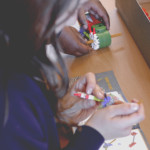
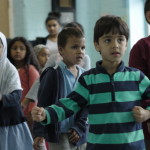
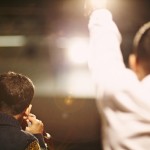
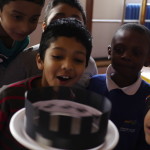
Leave Your Reply